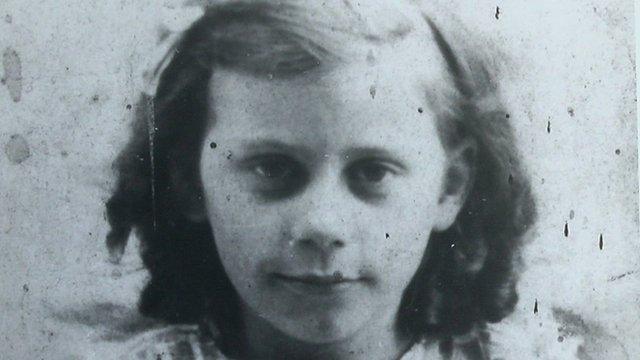Plymouth Blitz: Plaque for 48 firefighters unveiled
- Published
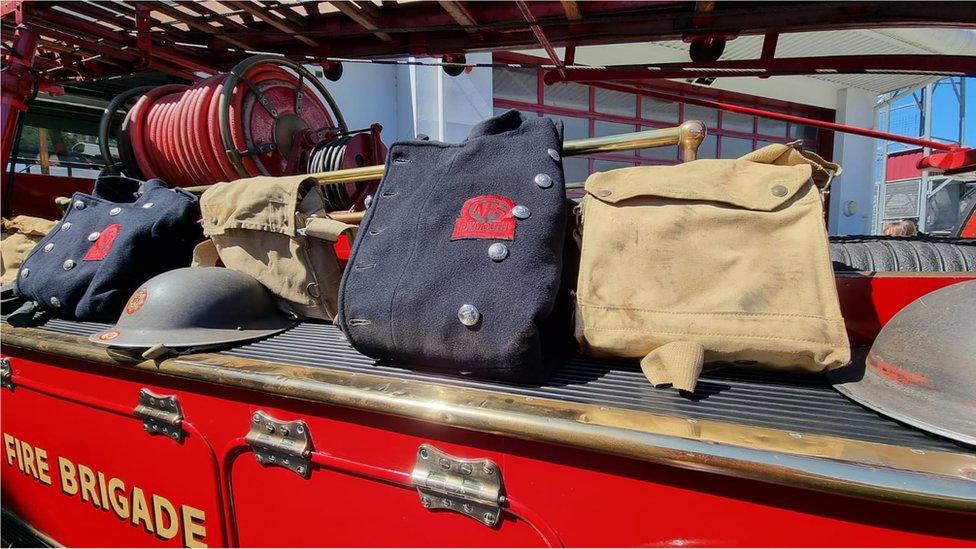
Memorabilia was on display for the plaque unveiling
The names of 48 firefighters killed during the Plymouth Blitz 80 years ago have been listed together on a memorial plaque for the first time.
The 45 men and three women lost their lives trying to fight flames which engulfed the city when it was heavily bombarded by the German Luftwaffe.
The World War Two 'Red Plaque' was unveiled at Greenbank Fire Station on Sunday.
It would honour the "courage and sacrifice involved", fire chiefs said.
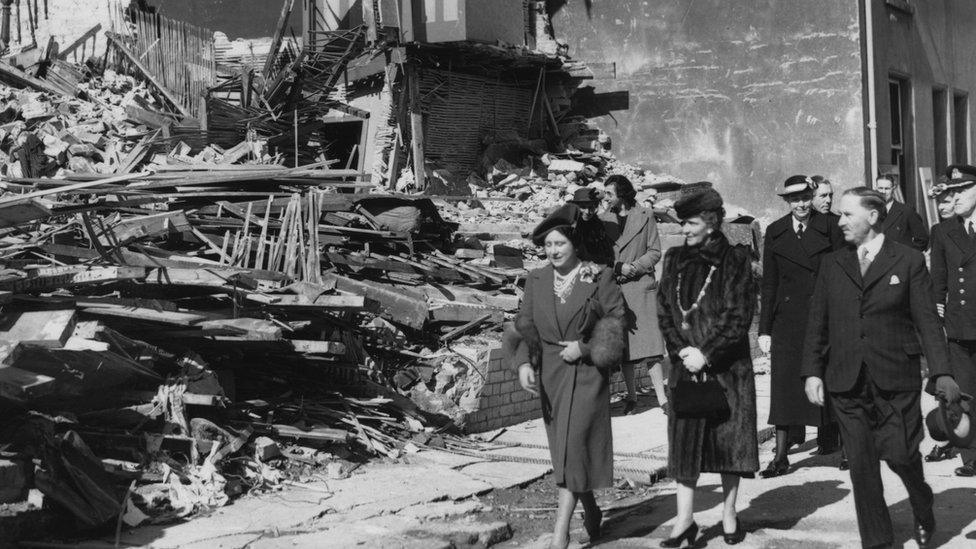
Queen Elizabeth, later Queen Mother, inspecting air-raid damage with local MP Nancy Astor
The Plymouth 'Blitz 80' initiative to identify the names of all 48 victims had involved almost three years of detailed research, Devon and Somerset Fire and Rescue Service said.
The plaque will be placed permanently at Plymouth Fire Station in a larger event to be held once lockdown restrictions are eased.
Some 1,178 civilians were killed in the Plymouth Blitz, beginning in March 1941, as part of the sustained German bombing of major British cities.
Plymouth was targeted because of its importance as a major naval port and much of the pre-war city was destroyed.
Chief Fire Officer Lee Howell said: "It's hard to comprehend the horrific scenes these firefighters would have faced. What is clear though is that these were courageous and selfless acts, which we are still rightfully recognising 80 years on, and will continue to remember long into the future."
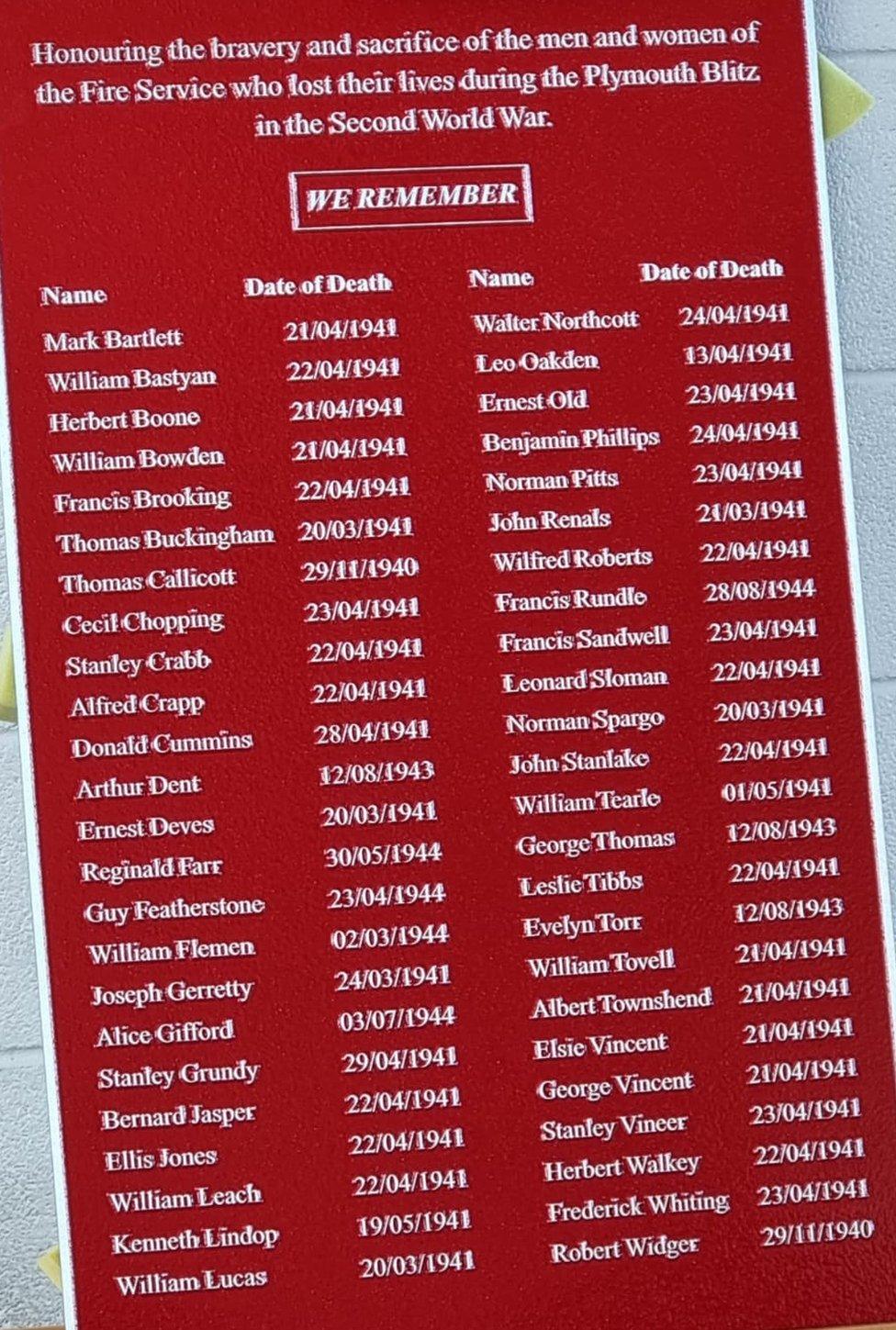
The plaque commemorates 45 men and three women

The Blitz: September 1940 - May 1941
The sustained German bombing of major British cities began towards the end of the Battle of Britain
Hitler ordered his air force, the Luftwaffe, to switch its attention from RAF infrastructure to urban centres of industrial and political significance
In the first years of the Blitz, Anderson shelters were provided by the government, and 150,000 of these were distributed to houses with gardens
About 43,000 civilians were killed in the raids, including 1,178 in the Plymouth Blitz, which began in March 1941
The bombings petered out when Hitler began to focus on his plans to invade Russia

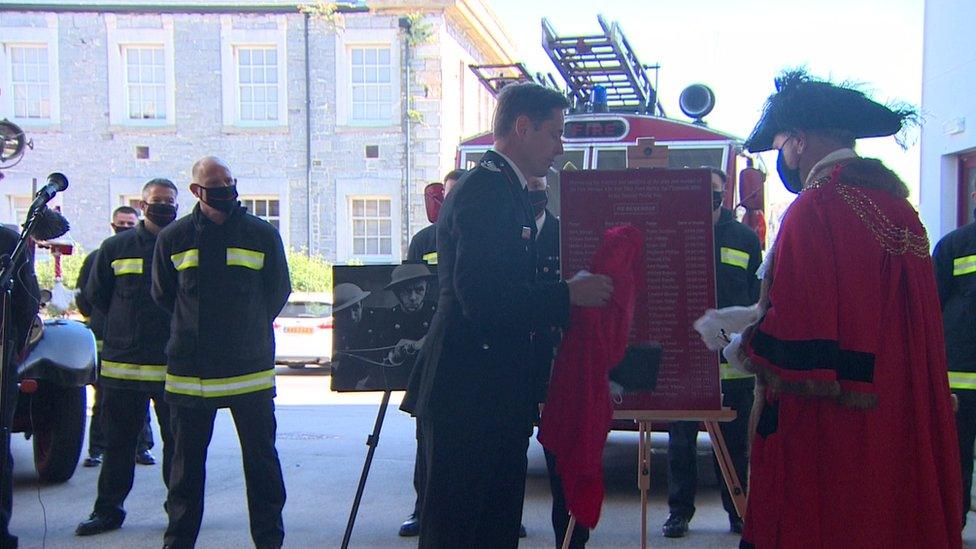
The project was funded by the Firefighters100 Lottery and led by The Fire Brigades Union (FBU).
The greatest loss of civilian life in the Plymouth blitz came when the Portland Square air raid shelter was struck on 22 April 1941, leaving 76 people dead.
Tam McFarlane, from the Fire Brigades' Union, said: "The period of the Blitz was a defining period in the history of the UK Fire Service, and the firefighters of today are determined that the bravery and sacrifice of our predecessors is always remembered."
He said the fires created by the bombs which fell on Plymouth were so large and destructive that crews travelled from neighbouring counties to support their colleagues.
"During this desperate period, firefighters worked in circumstances which are almost beyond imagination," he said.
"They risked their lives on a nightly basis, fighting fires with limited water supplies and limited equipment, digging through rubble in desperate attempts to save as many lives as possible."

Follow BBC News South West on Twitter, external, Facebook, external and Instagram, external. Send your story ideas to spotlight@bbc.co.uk, external.
- Published22 April 2021
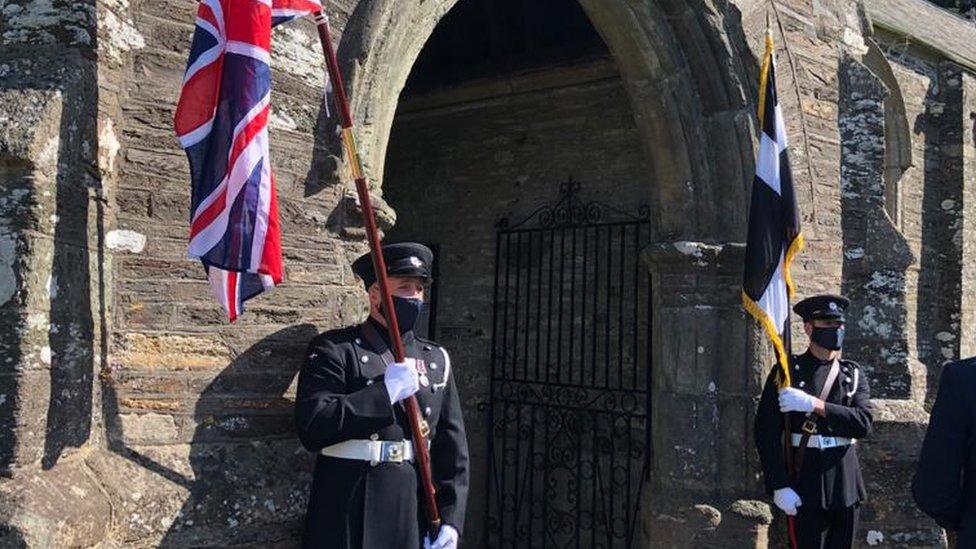
- Published22 April 2016
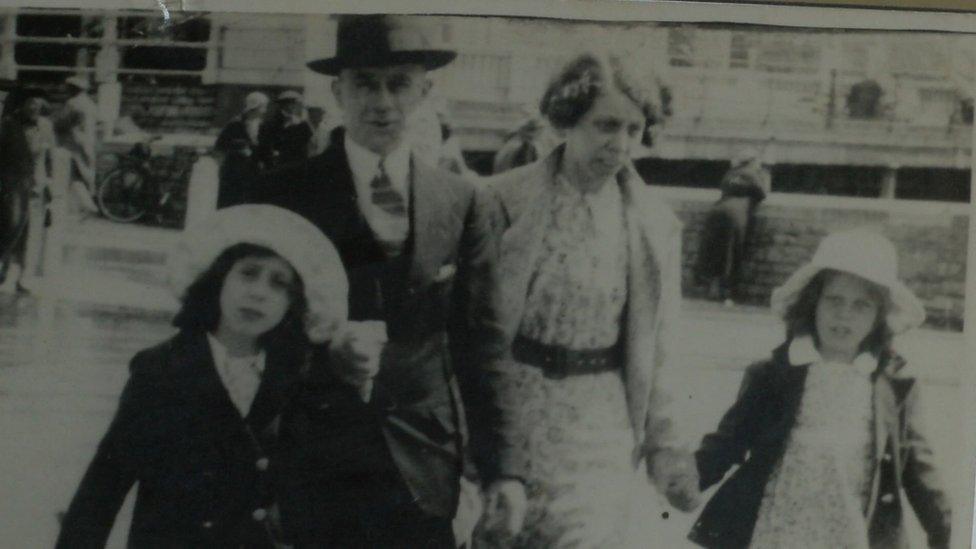
- Published22 April 2016
